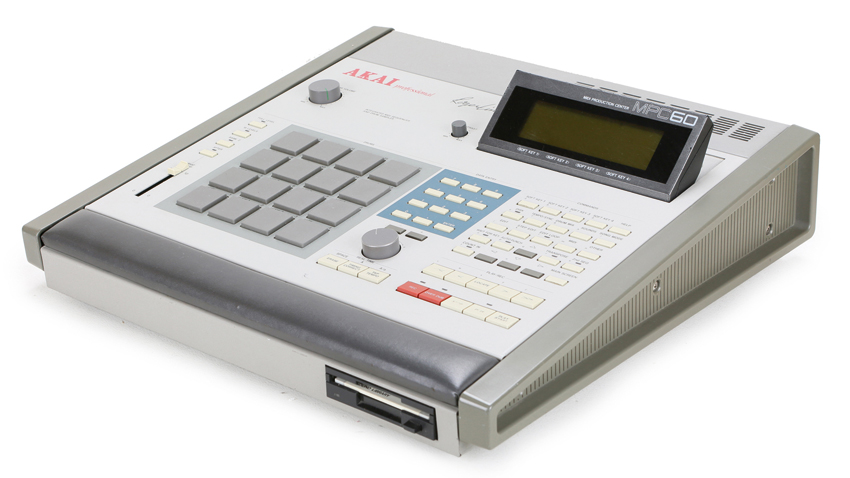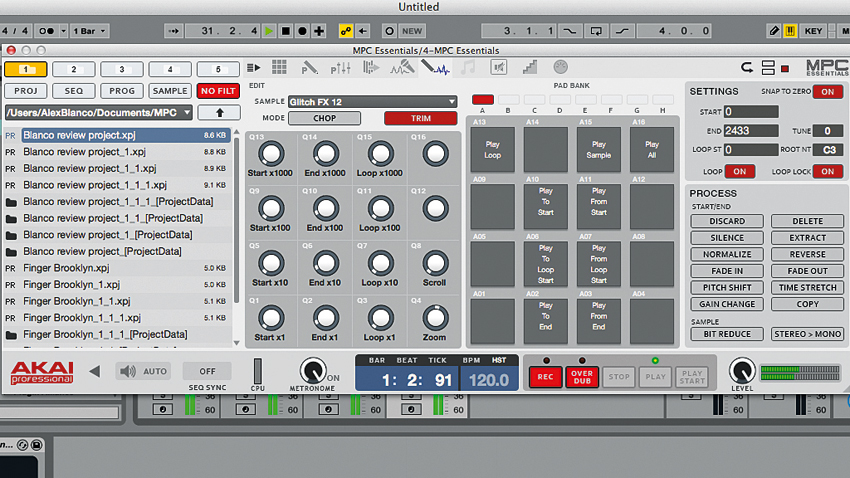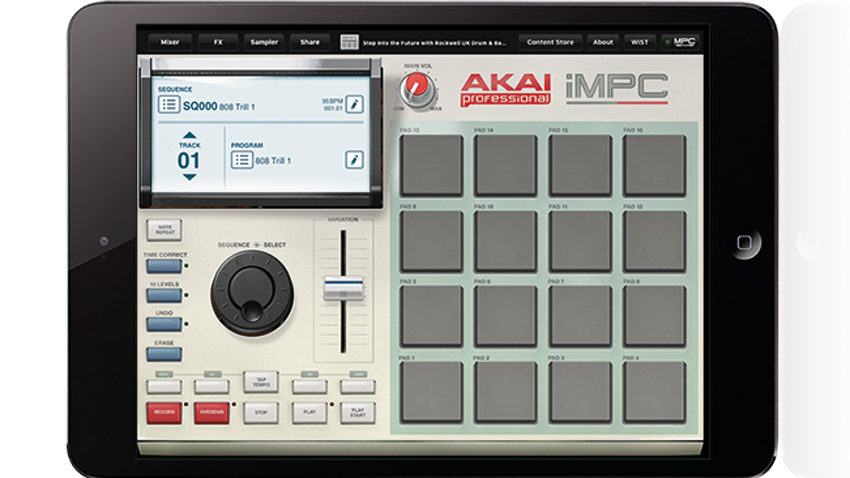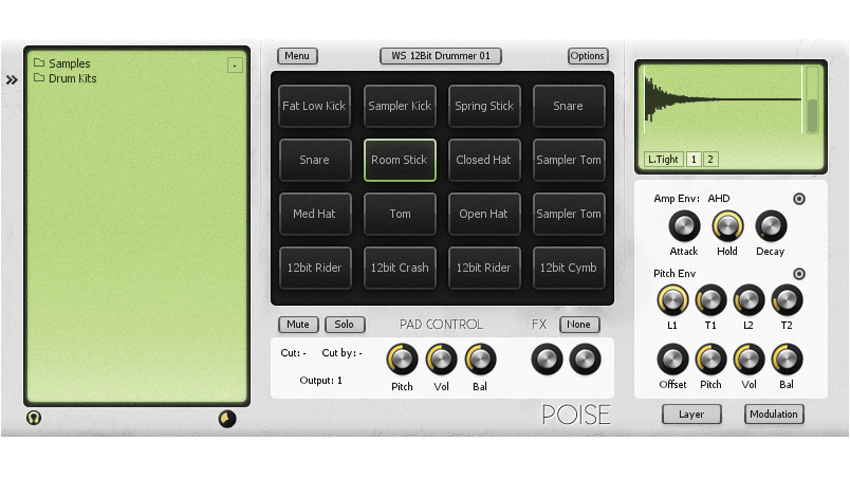Blast from the past: Akai MPC60
The king of hip-hop production tools, the Roger Linn-designed MPC60 mapped out the path still followed by manufacturers today

Want all the hottest music and gear news, reviews, deals, features and more, direct to your inbox? Sign up here.
You are now subscribed
Your newsletter sign-up was successful
Some classic instruments seem to spring out of nowhere - unprecedented bursts of creative genius that shake the industry and leave competitors scrambling to keep up. Others, though, only appear after a long gestation period, growing in scope and maturity as the design is refined over multiple iterations. Such is the case with Akai’s MPC60, the now legendary drum machine-cum-sampler-cum-sequencer.
It all started when Roger Linn - a struggling musician at the time - decided that building his own drum machine might be a viable alternative to the expensive preset analogue rhythm boxes available at the time. An early dabbler in computers, he created a grid-based rhythm program to suit his needs. His chosen method of 8-bit sample playback for sound generation would change music forever after.
The fruit of his labours was the LM-1 Drum Computer, released to a stunned music industry in 1980. A rousing success, it spawned two follow-ups: the LinnDrum in 1982 and the Linn 9000 in 1984. The latter model has only recently received the attention it was probably due, but at the time it was seen as something of a misfire. Big, buggy, but loaded with high-end features intended to appeal to a professional market, the Linn 9000 offered 32 tracks of MIDI sequencing, 8-bit sampling (with editing) and 18 velocity-sensitive drum pads laid out in an almost-familiar arrangement on the front panel.
If this sounds familiar, that’s because the Linn 9000 was - unintentionally - a dry run for the machine Linn would design for Akai, the company for whom he worked after the 9000 helped to sink his own outfit.
Unlike the Linn Electronics incarnation, Akai’s MPC60 was a fully-realised and mature product. A tidier - and somewhat austere - front panel adorned with buttons and 16 velocity-sensitive pads, the MPC60 provided producers with then-advanced features like MIDI, MTC and SMPTE sync, 16-voice polyphony, and upgraded audio quality in the form of the gritty 12-bit, 40kHz stereo samples that would put an indelible stamp on every beat made with the thing.
Also instantly identifiable is that famous Linn groove. First developed for the LM-1, Roger Linn’s swinging shuffle function was used in every one of his beatboxes and helped make the MPC60 a classic among R&B and hip-hop producers.
Virtually every groovebox released in the past 30 years owes a little something to the MPC60, and today its legacy is apparent even in software samplers and MIDI controllers
The original MPC60 was followed by a sleek but relatively unchanged MkII model in 1991, and countless editions since.
Want all the hottest music and gear news, reviews, deals, features and more, direct to your inbox? Sign up here.
Virtually every groovebox released in the past 30 years owes a little something to the MPC60, and today its legacy is apparent even in software samplers and MIDI controllers.
Before the MPC60, there were drum machines, samplers and sequencers. Roger Linn combined them in one device, adding intuitive performance controls and creating an entirely new kind of interface between man and machine that continues to inspire thousands of musicians and producers to the present day.
Although Akai’s focus of late has been on software MPCs with dedicated hardware controllers, the recently announced MPC X and MPC Live look set to bring them back to their standalone roots. We can't wait to get our hands on them!
Three virtualised MPCs

Akai MPC Element/Essentials
A hybrid product from Akai itself, MPC Element consists of an inexpensive USB controller clearly carrying the legacy of the MPC line. it works with the MPC Essentials software or can be used with an unlocked copy of the higher-spec MPC Software for a fully realised MPC experience.
Other hardware options are also available.
FULL REVIEW: Akai MPC Element/Essentials

Akai iMPC
Akai conspired with Retronyms to create iMPC for the iPad. Loaded with over 1200 samples, it provides the instantly recognisable MPC interface, albeit one based on their more recent MPC hardware.
Though tapping out a beat on a glass screen lacks the tactile feedback of the real thing, iMPC is loads of fun for a steal of a price.
FULL REVIEW: Akai iMPC

One Small Clue Poise
Like so many others both hard and soft, this Windows-only rhythm production instrument is clearly based on the look and feel of the Akai MPC series.
Designed for quick and easy usage, Poise allows you to drag up to eight samples onto any of its 16 pads. Basic editing is on-hand and a humanisation function helps you defy the grid.
READ MORE: One Small Clue Poise


Computer Music magazine is the world’s best selling publication dedicated solely to making great music with your Mac or PC computer. Each issue it brings its lucky readers the best in cutting-edge tutorials, need-to-know, expert software reviews and even all the tools you actually need to make great music today, courtesy of our legendary CM Plugin Suite.
